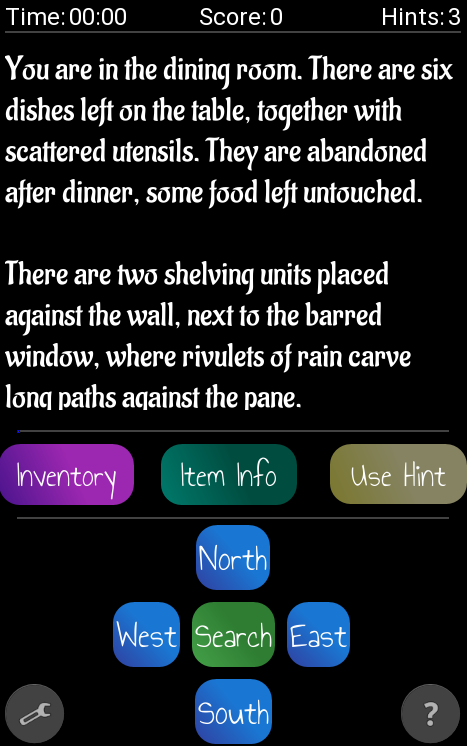Note: If you’re interested in Mansion Escape, check its brand new iteration, available for PC, Mac, or Linux, on desktop or mobile.
Please note that none of my Android apps is any longer maintained – and they’re not even available on Google Play anymore – for reasons you can read about here. If you still have any of the Home for Fiction Android apps installed on your phone, you’re advised to uninstall them. The post below should be seen purely as a snapshot of history.
Mansion Escape is a text adventure app I’ve developed for Android phones and tablets. Mansion Escape pays homage to the text adventure genre of the early computer era, as well as to the “dark mansion” genre of films, board games, and narrative in general.
After all, a text adventure app is first and foremost a narrative! That is, a text adventure app is a piece of interactive fiction, where the player/reader follows a story actually participating in it, deciding which path to take.
Mansion Escape: a Text Adventure App where Clue meets the Cold War
I’ve talked in the past about the devolution of video games, and how today’s games can sometimes be a bit too easy. Text adventures were a kind of adventure games in the early computer era, where the player had to actually read (the horror, the horror) the descriptions, as there were no graphics.
Of course I realized that this is not 1985, and an entirely text-based Android app would not be well received. So, instead of (old-school) typing commands, we use buttons. But make no mistake! This is still a text adventure game.
(more…)


